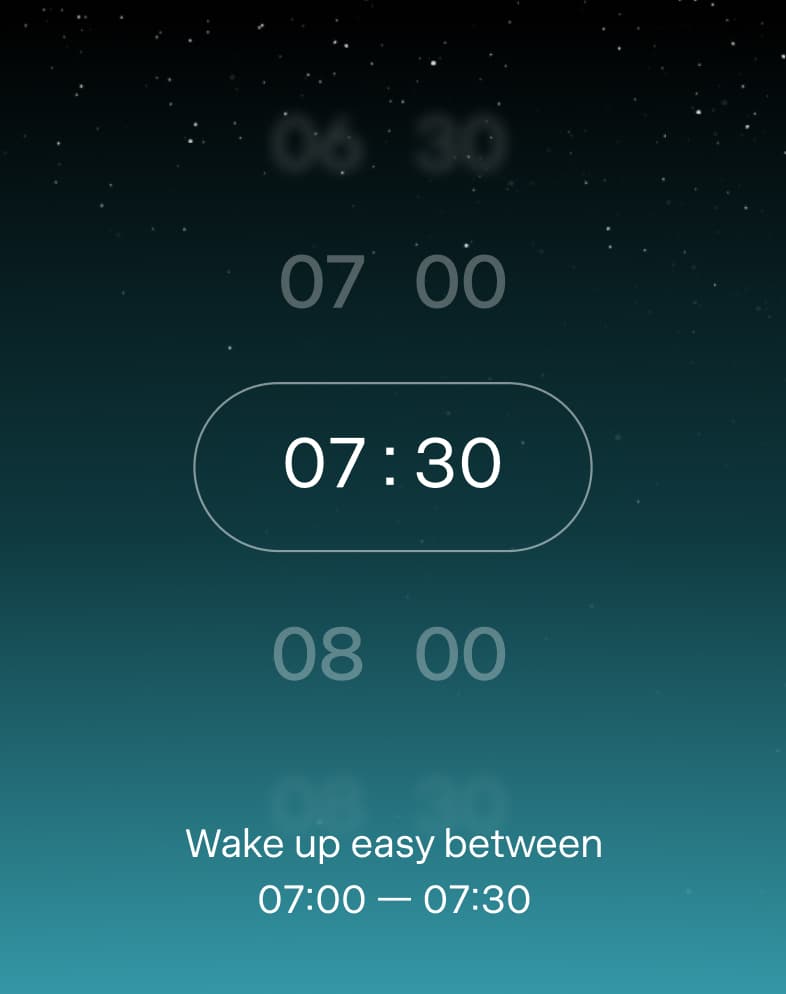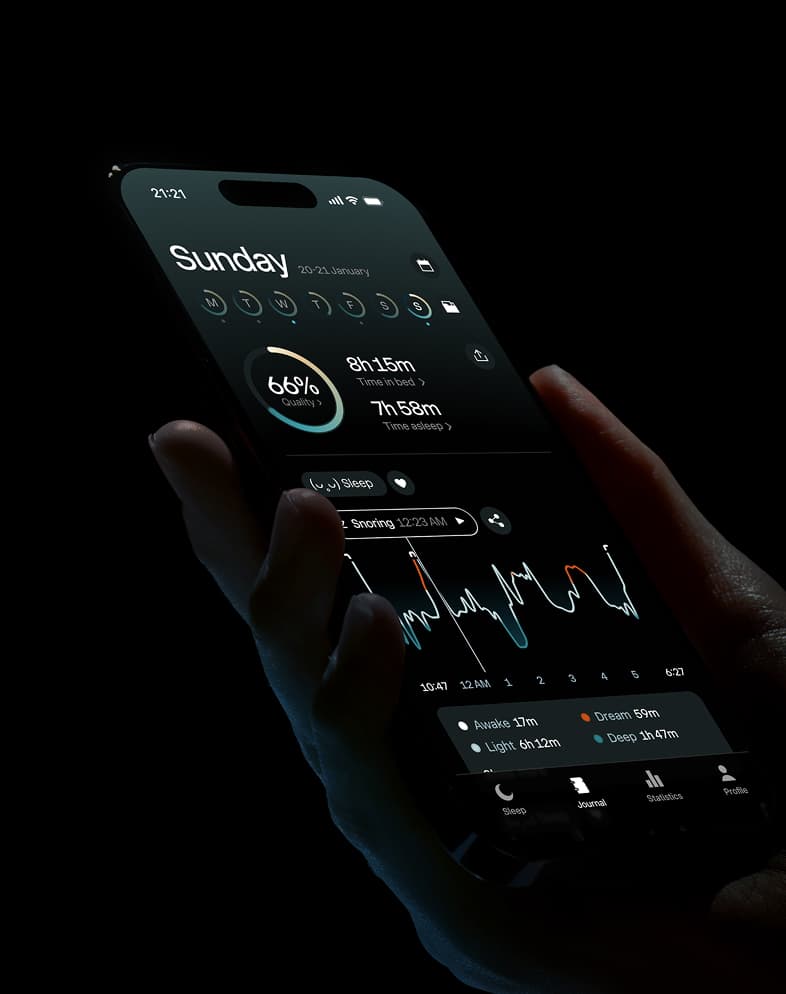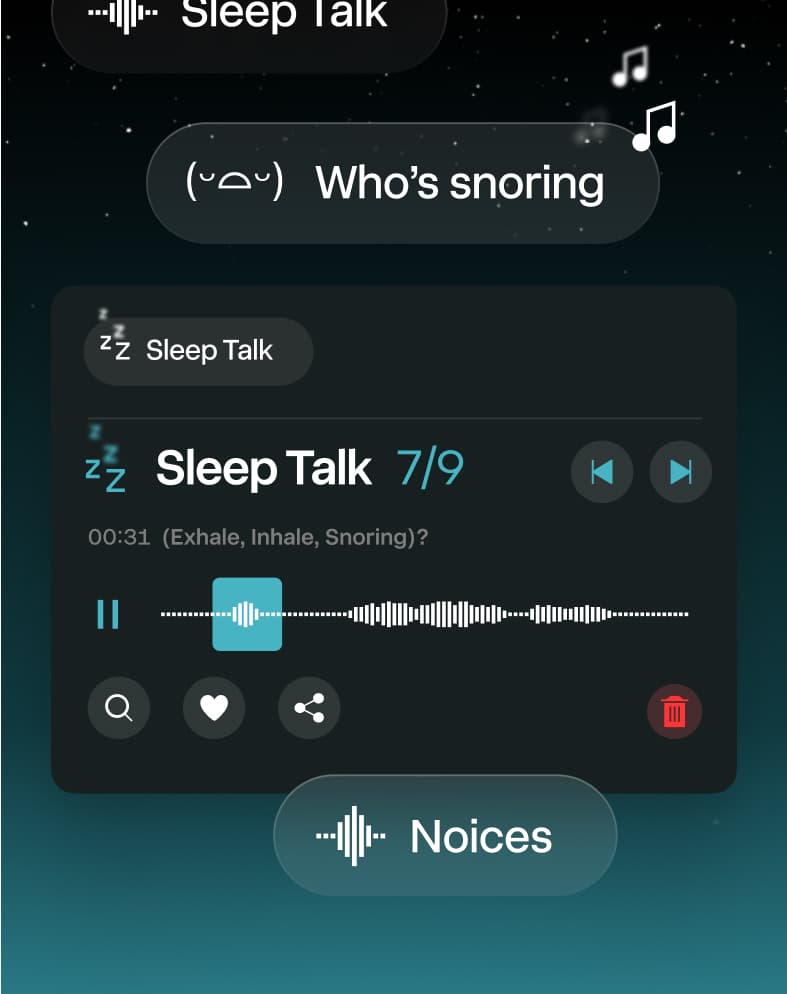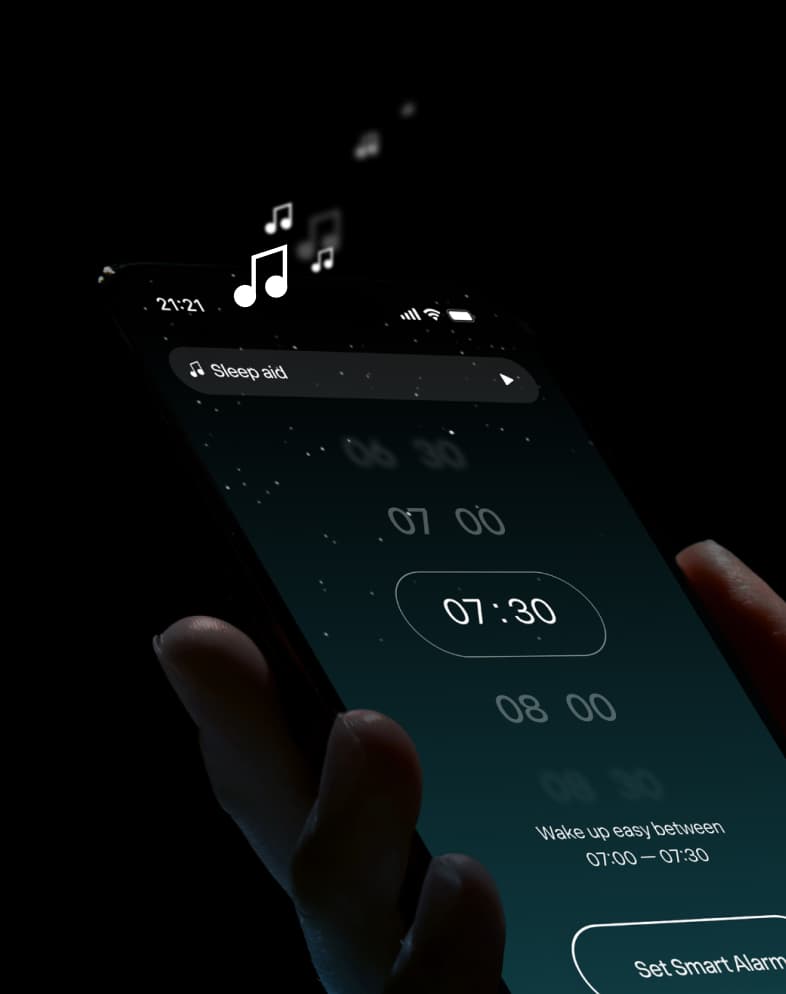The World’s No.1 Sleep App
Good Night. Good Tomorrow.
Built on science, Sleep Cycle uses sound analysis to track and improve sleep for millions worldwide.
App of the Day
Editors Choice
Backed by Science. Loved by millions.
We take pride in having over a million people trust our app every night—more than any other in our field. This loyalty is built on 15 years of teamwork and creativity. Every feature we add is crafted with your input, backed by solid research, and powered by a unique database of three billion sleep sessions.
Product Features
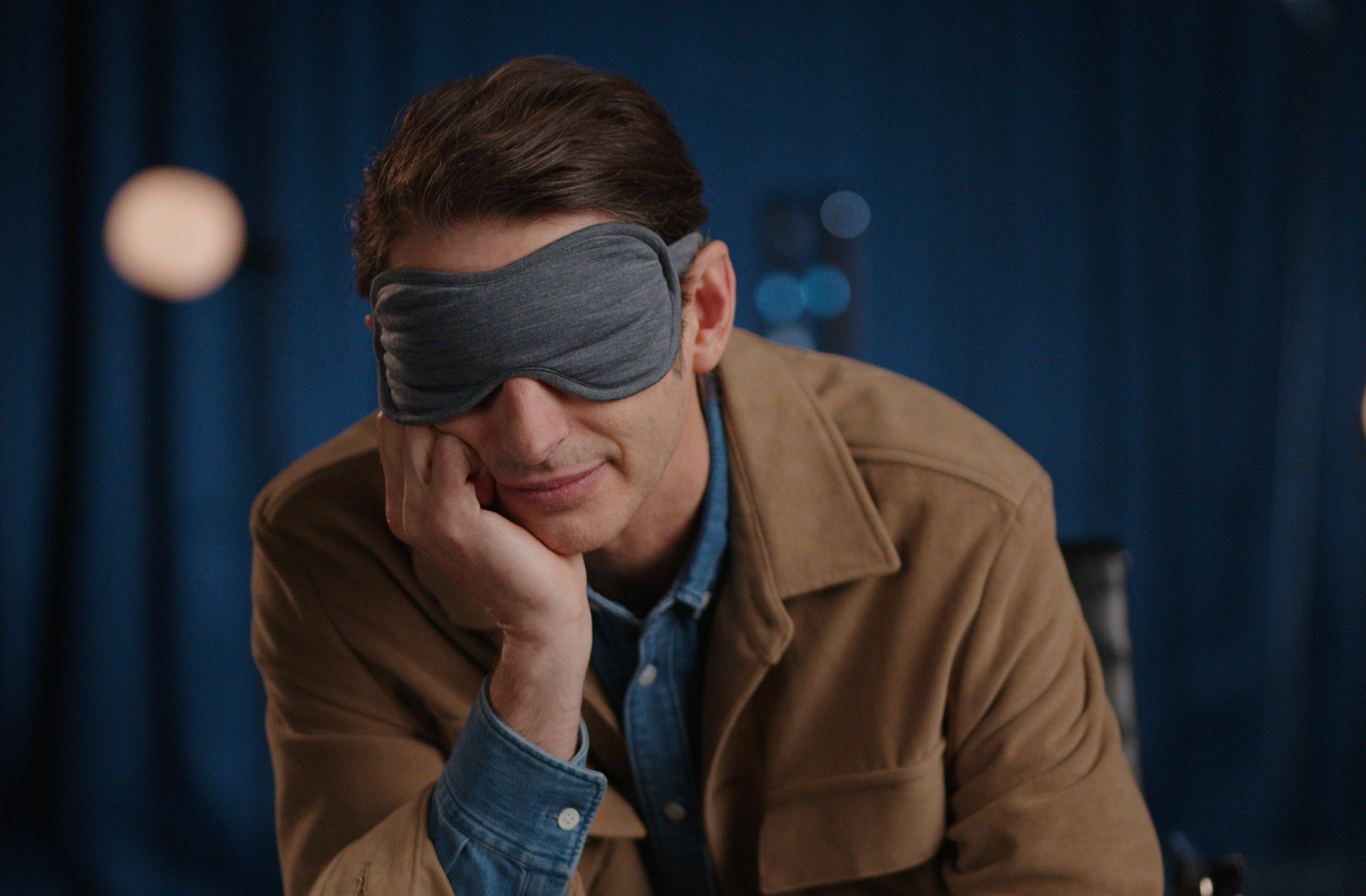
Sleep Insights with Dr. Mike Gradisar
Unlock the secrets to better recovery with The Science of Sleep, a captivating online masterclass series featuring Dr. Mike Gradisar, a world-renowned sleep expert. From the wild sleep patterns of teens to the busy nights of early adults in their 20s and 30s, the joys and jumbles of parenting young kids, the changes of menopause, and must-know advice for all, this series has you covered. With Dr. Gradisar’s 25 years of expertise, you’ll gain fun, practical insights to tackle sleep challenges at every stage, turning restless nights into mornings full of energy and possibility!
A guide to
Healthy Sleep Habits

Building good sleep habits can transform your health and daily life. Stick to a regular sleep schedule—similar bedtime and wake-up time every day—to sync your body’s internal clock for better rest. Wind down with a calming routine, like reading or stretching, and keep your bedroom dark, quiet, and cool for the perfect sleep vibe. These simple steps boost your immune system, sharpen your mind, and lift your mood, proving that a little effort at bedtime pays off big for your well-being!


